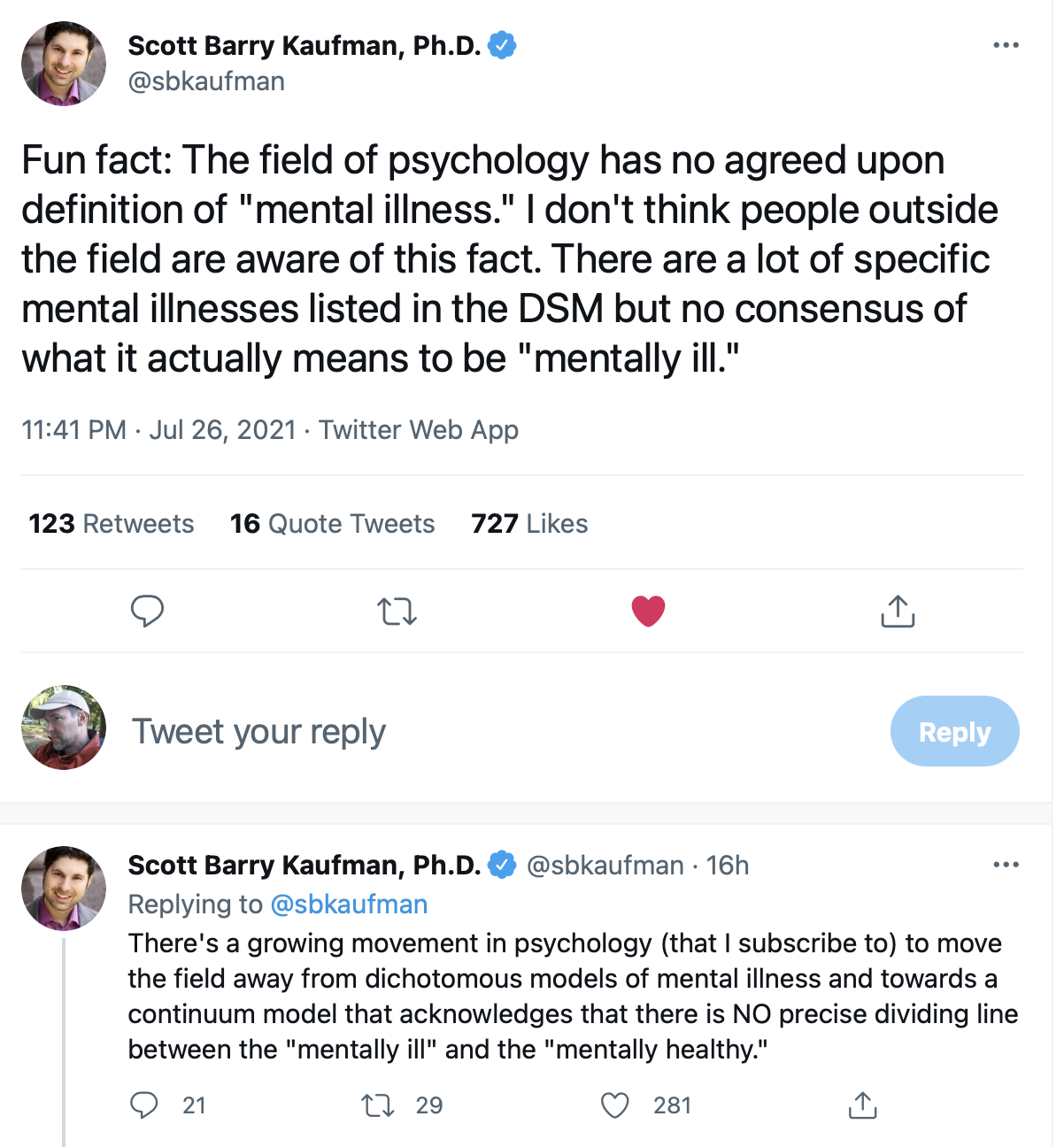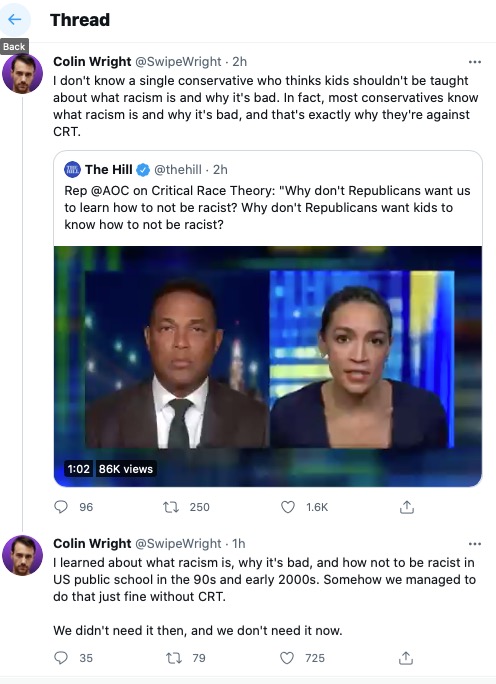John McWhorter joins Firing Line's Margaret Hoover on PBS to discuss "Critical Race Theory."
Margaret Hoover:
what are they rallying against? What are they teaching that is objectionable?
John McWhorter:
here's the here's the issue. And I wish all of them would be more specific there two things. One is practically lining all the kids up against the wall and teaching the white people, our oppressors, black people are oppressed, and that the white kids need to know it, and the black kids need to know it. And what however you present it, that is some strong stuff to be giving to eight year olds to teach that whiteness is potentially evil and that blackness means that you have to constantly be on guard against it.
Then the second thing is a basic idea that battling power differentials, and specifically racism, often is supposed to be not just one of many things, not just one of many things in the meal, but the center, the fulcrum of all intellectual, artistic and moral endeavor. That's what is being taught at many schools. It's not just whether or not you teach people that there was slavery, that there was redlining and that racism can be subtle. It's making all of these schools antiracist boot camps. That's the problem these days.
After last summer, there was this educational opportunity many of these people saw where you could start saying that you needed to do this within this racial reckoning. And if you don't do it, you're a racist. Now, if anybody had tried to pull that, say, 15 years ago, it wouldn't have work. But now we have Twitter, so if you go against them, you get called a racist in the public square. For nine out of 10 people, that's enough to make them follow along, because most of us are buying groceries and raising our kids, but the result of this has been truly dangerous.
Margaret Hoover:
So you just introduced a new term into this conversation, anti racism. And your next book is entitled, Woke Racism: How a New Religion has Betrayed Black America. Explain what is the relationship between anti racism and critical race theory?
John McWhorter:
Well, anti racism as a fashionable word these days, but what it means in practice, you know, who knows what its definition in the dictionary is, but what it means in practice is that if there is some kind of imbalance between white and black people, the reason is something called racism, either bigotry, or some raw deal that black people have been done as the result of it and probably a mixture of the two. And that therefore, what we're going to do is we're going to battle that racism. That's what anti racism means in our current context. And the problem with it is that, often, what we're seeing as, quote unquote, racist isn't. So the common idea that you get nowadays, black kids tend not to do as well on standardized tests. Well, instead of saying, "How do we get black kids to do better on them?" which is something that has happened in the past, the new idea is that you say, "Let's just get rid of the test, because the test must be racist." You don't have to specify how, but if the black kids don't do as well on it, the test is a racist practice. That's a real leap. That is a hyper-radical way of looking at things that I think most people presented with the mechanics of the argument would think of as rather cruel, frankly, to black kids. That's not the way to run a society., most of us would think. Some people might be able to make a case for it, but most of us wouldn't agree with that. But instead, we're being taught that if you're not an antiracist, you're bad. And we're gonna embarrass you on Twitter. And as a result, many people end up pretending to agree with ideas like this.
Margaret Hoover:
There are local school board meetings across the country, getting national attention with parents using the word indoctrination about anti racism curriculum. You say that you've been contacted by parents and teachers and principals from all over the country on a daily basis? What are people who reach out to you telling you
John McWhorter
Well, people who reach out to me are telling me is that they are extremely disappointed and are angry that this is suddenly happening in their school. And the regular theme is that they understand what racism is, but they don't want their kids being taught what to think as opposed to how to think. And then also, they're scared. They are so deeply afraid of being tarred as racists in public. And these people just they want their children to be taught not that there's no racism. They don't want their children to be taught Beaver Cleaver as America, but they don't want want their children to be going to antiracist academies. The idea that that represents progress that nobody should stand athwart is one of the most sclerotic ideas I had ever seen becoming mainstream in my entire existence.
 Fascinating. So what is it, at bottom, to call someone "mentally ill? Is it essentially name calling? We are surrounded highly functional people who periodically and temporarily seem highly dysfunctional in specific ways. We have been cobbled together by natural selection, living Rube Goldberg machines, we are also equipped with sophisticated built-in PR departments that make it seem like we are more purposeful, more functional than we actually are. Further, Randolph Nesse has made a strong case that many "mental illnesses" are adaptive. What does it help use a global stamp of "mentally ill"?
Fascinating. So what is it, at bottom, to call someone "mentally ill? Is it essentially name calling? We are surrounded highly functional people who periodically and temporarily seem highly dysfunctional in specific ways. We have been cobbled together by natural selection, living Rube Goldberg machines, we are also equipped with sophisticated built-in PR departments that make it seem like we are more purposeful, more functional than we actually are. Further, Randolph Nesse has made a strong case that many "mental illnesses" are adaptive. What does it help use a global stamp of "mentally ill"?

